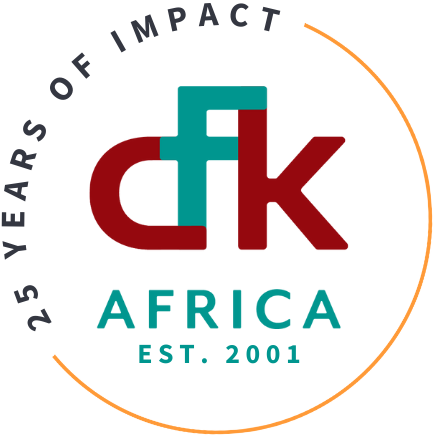Written by Sarah Lebu, CFK Africa 2022 Peacock Fellow and Ph.D. candidate in Environmental science and Engineering at The University of North Carolina at Chapel Hill
Last summer, I had the privilege of returning to Kenya, diving deeper into my research in Kibera, Nairobi’s largest informal settlement. While Kibera is renowned for its vibrant community spirit and resilience, this year it faced a devastating challenge: severe flooding in April uprooted lives and exacerbated public health inequities.
When the Waters Rise
Kenya’s floods of 2024 were a harsh reminder of how climate change amplifies the vulnerabilities of communities already grappling with systemic inequities. For residents of Kibera, the consequences went far beyond visible damage to homes and infrastructure. Contaminated water stagnated in neighborhoods, resulting in outbreaks of waterborne diseases.
Almost none of the homes in Kibera are connected to a sewer system, so most of the human waste is flushed directly into the environment. Though often viewed as separate issues, flooding and sanitation go hand in hand. Floodwaters seeped into pit latrines and toilets, leaving many residents with no access to safe and sanitary facilities.
The floods worsened the existing divide between those who can access clean living environments and those who cannot and as storms become more intense and frequent, events like this will be more common.
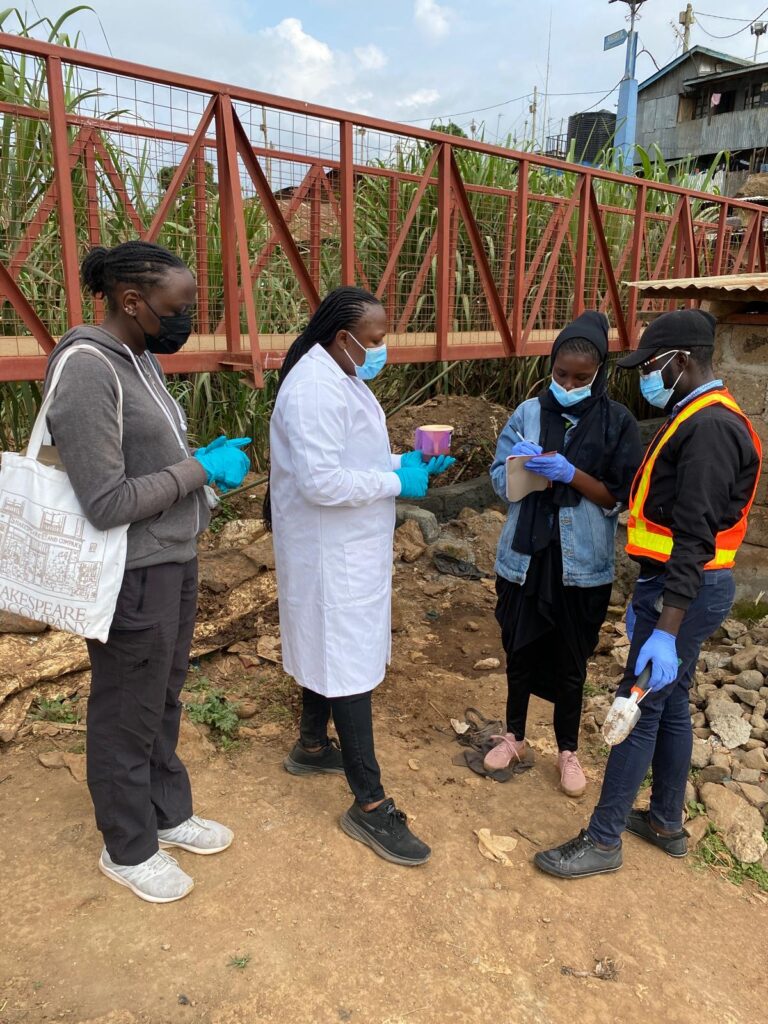
Shedding Light with Fluorescent Dye
It has been two years since I traveled to Kibera as a CFK Africa Peacock fellow to work on sanitation-related challenges. I returned to Kenya this summer because the flooding presented new opportunities for my research, which focuses on understanding the impacts of climate change on sanitation services. As part of this research, I conducted a study to identify sanitation systems that are most vulnerable to flooding. My secret weapon? Fluorescent dye!
The process was as fascinating as it was revealing. By adding fluorescent dye to select toilets and tracking its path through the environment during floods, I successfully pinpointed toilets that were failing to contain waste effectively. The dye creates bright color signals that are easily visible, and these signal trails tell a story of contamination spreading through the community.
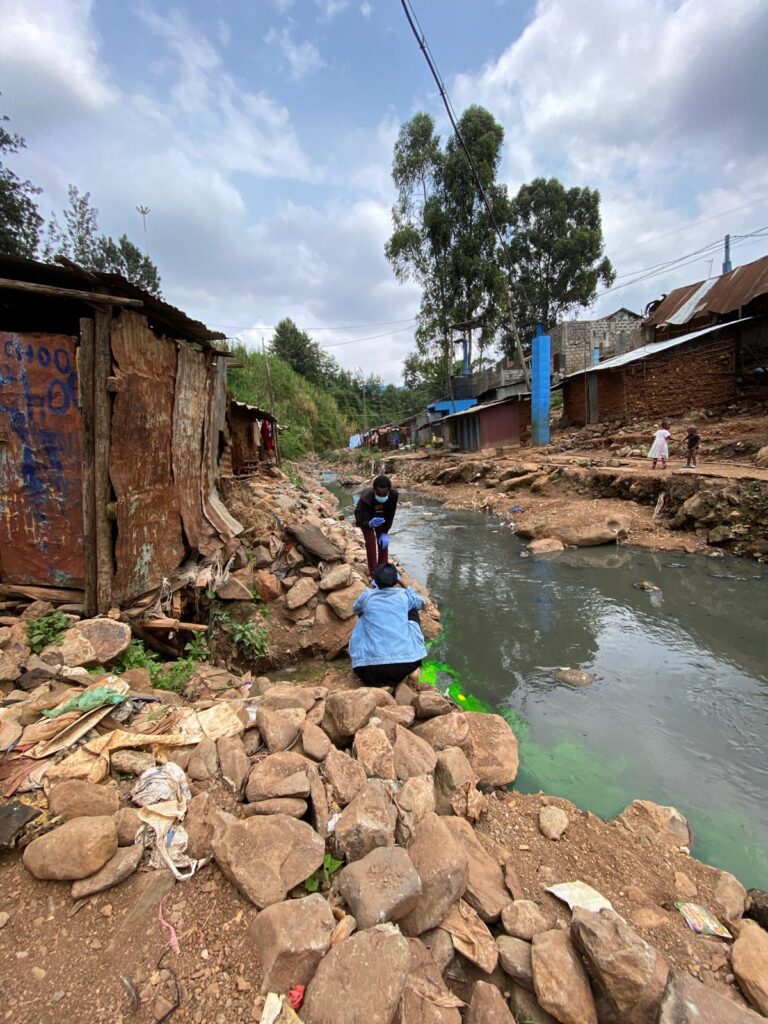
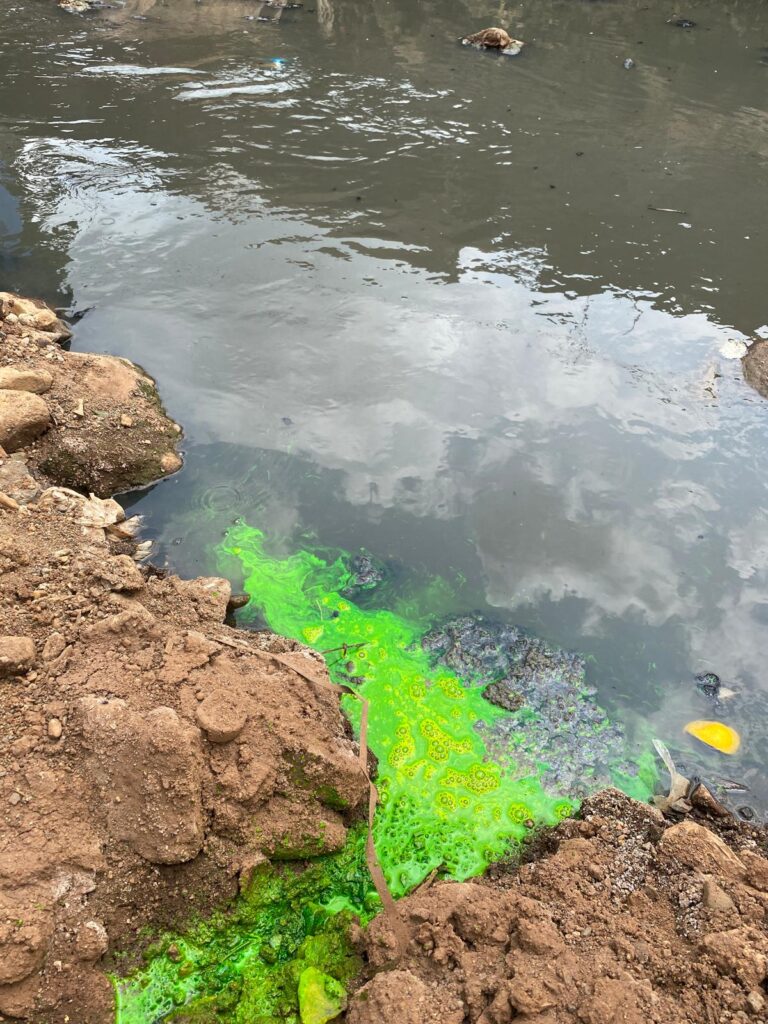
The research wasn’t just about data collection; it was also about partnership. Together with community leaders like chiefs, county public health officers, and residents, we discussed the results, shared ideas, and explored solutions to make sanitation more equitable and climate-resilient. Solutions included clearing stormwater drains of debris and designing resilient latrines. Their insights and lived experiences were invaluable, emphasizing that lasting change happens when solutions are designed with—and not just for—the communities impacted.
Looking Forward
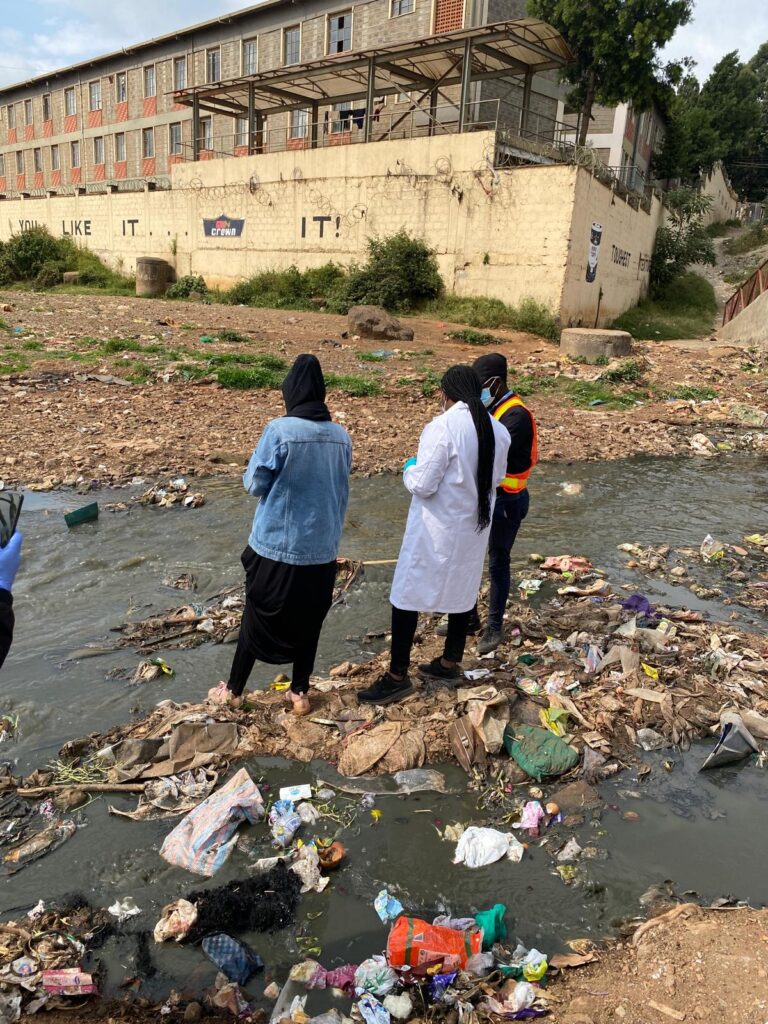
This summer reaffirmed my passion for tackling inequities in environmental health outcomes by working alongside the communities that are most affected. I believe deeply in cultivating local leadership and equipping individuals with the tools to champion their own needs.
As I wrap up my dissertation, I am grateful for everyone who contributed to this work—the residents of Kibera, my research team, and my mentors who supported me every step of the way. Thank you for participating with your insights, encouragement, and collaboration.
A huge shoutout to the amazing WASH team at CFK Africa, who made my time in Kibera not just productive but genuinely enjoyable. The team is deeply integrated into the community, and it shows—like knowing which villages of Kibera were hit hardest by the floods, the safest spots to cross the Nairobi River, and, most importantly, where to grab the best hot chai to thaw out after a long, chilly day of work. They also suggested creative ways to share my research, like posting on popular community forums such as Kibera News Network on Facebook. Their partnership truly made my work possible and reminded me of the power of community-centered collaboration.
By pursuing both flood resilience and sanitation access together, communities can become cleaner, safer, and more resilient.
Support CFK Africa’s equitable research collaborations in informal settlements like Sarah’s with a tax-deductible donation.
